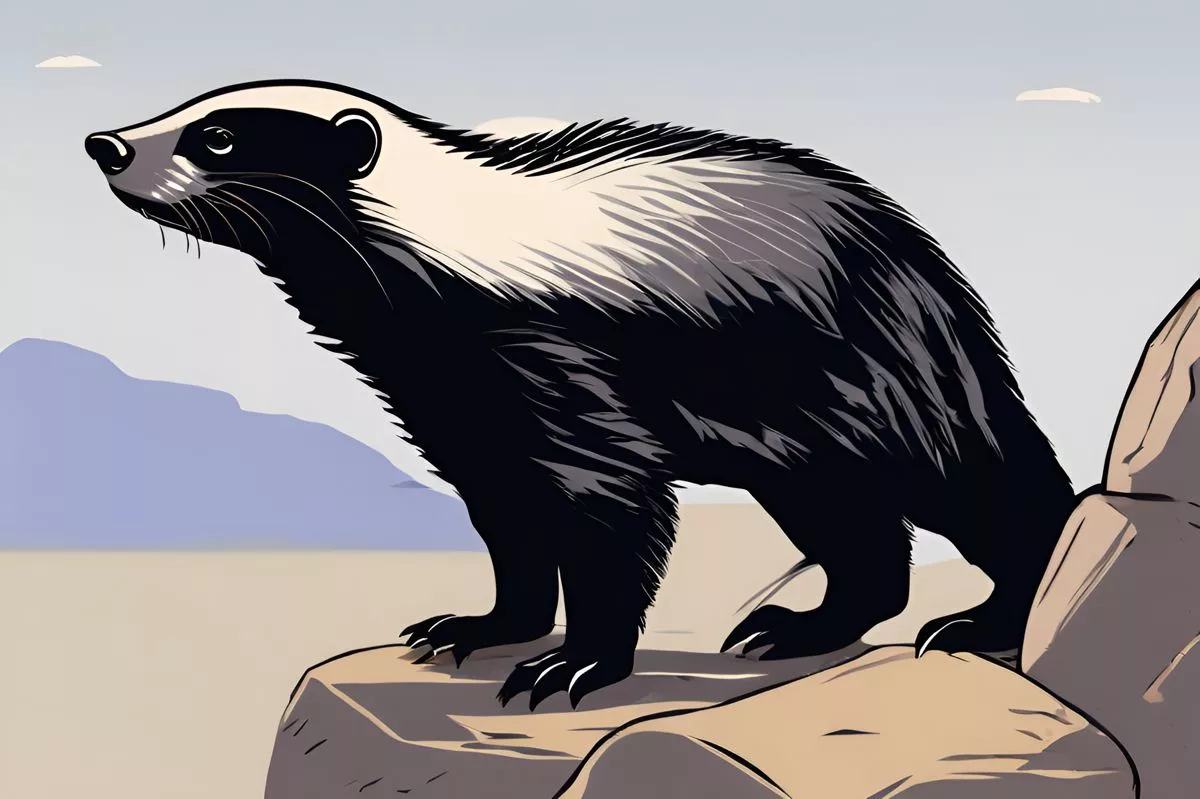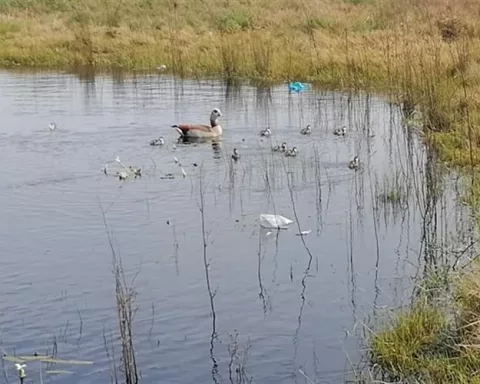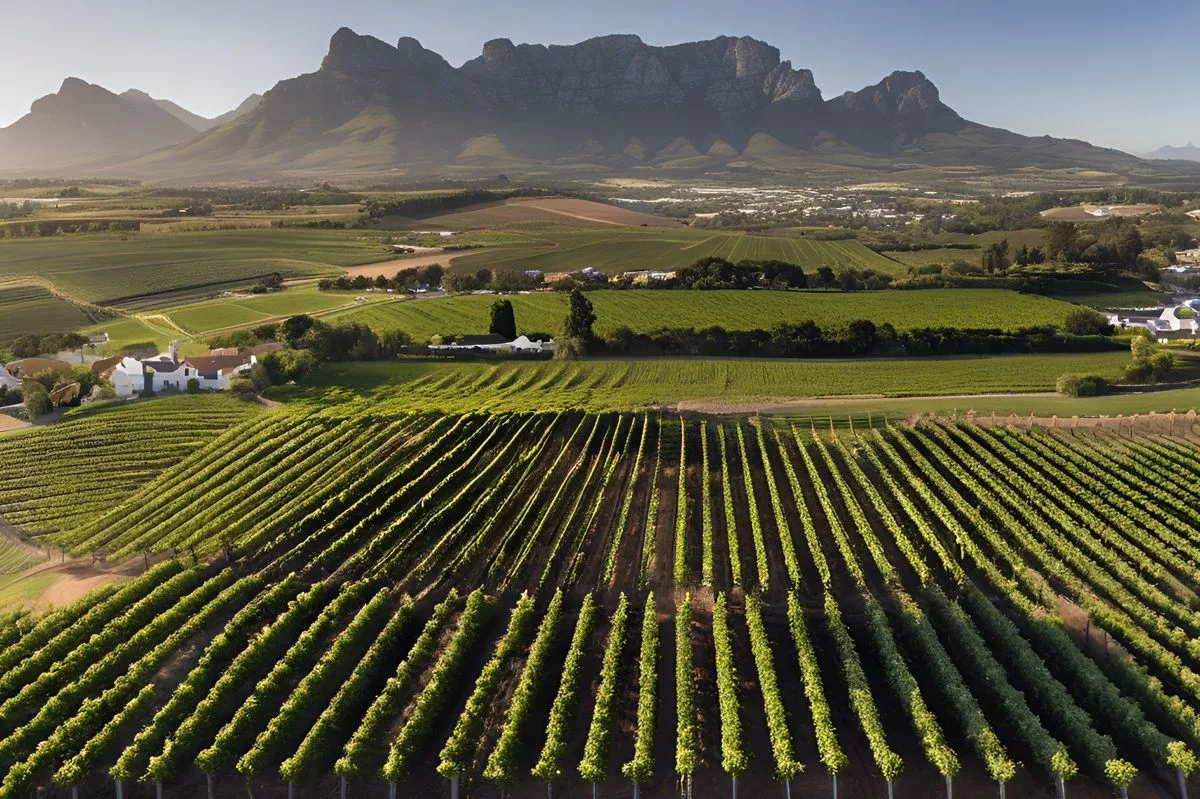A rare honey badger, also known as a ratel, was sighted near the University of Cape Town’s Institute for Communities and Wildlife in Africa on April 3. This marks the first documented presence of a honey badger near UCT and adds a new dimension to Table Mountain’s biodiversity. Honey badgers are known for their ferocity and audacity, and their adaptable nature often puts them in conflict with humans. If honey badgers start breeding and expanding on Table Mountain, it could pose new problems for urban residents.
Honey Badger Sighted in Cape Town Campus: A Rare Find
Student Benjamin Wittenberg discovered the presence of a rare honey badger near the University of Cape Town’s Institute for Communities and Wildlife in Africa on April 3. Honey badgers, also known as ratels, are found across the African continent but rarely in urban areas or on the Cape Peninsula. This sighting marks the first officially documented presence of a honey badger near UCT and adds a new dimension to Table Mountain’s biodiversity.
Discovery on Campus
In a groundbreaking discovery, student Benjamin Wittenberg from the University of Cape Town’s Institute for Communities and Wildlife in Africa stumbled upon the presence of a honey badger near the university premises on April 3. The scientific name of the honey badger is Mellivora capensis, and these creatures, also known as ratels, are spotted across the African continent, ranging from the Western Cape to Morocco. However, these creatures rarely make their appearance in urban areas or even on the Cape Peninsula.
Before this significant discovery, the iNaturalist website recorded only one instance of a honey badger sighting on the Cape Peninsula – a disputed and unconfirmed report of a honey badger attack on a bee hive back in 2014. Furthermore, during a wildlife survey conducted on Table Mountain by SANParks last year, only one image of a solitary honey badger was captured. The recent sighting by Wittenberg at UCT marks the first officially documented presence of a honey badger near UCT.
Unusual Sightings and Predatory Hierarchy
Wittenberg, who is responsible for this year’s iCWild camera trap survey, was evidently thrilled by the sighting, calling it “super cool”. He noted that the animals most commonly captured on camera are domestic cats and porcupines. Other regular visitors include mongooses, Cape grysboks, genets, and occasionally caracals. The arrival of the honey badger has added a new dimension to the biodiversity of Table Mountain and has challenged the caracal’s position as the apex predator in the region.
The reputation of the honey badger is well-established. These creatures are known for their audacity and ferocity, leading even lions to keep their distance. Their loose skin allows them to twist and retaliate against any attacker using their sharp teeth and claws. They have exceptional skills in catching snakes and are infamous for raiding beehives. They are known to prey on small wildlife and, as some sheep farmers claim, even lambs.
Interaction and Conflict with Humans
The adaptable nature of honey badgers often puts them in various situations with humans. They are infamous for their ability to break barriers and raid animal coops. There was an incident where a honey badger infiltrated a pigeon coop within the West Coast National Park and was unfortunately shot. In another local incident, a honey badger was captured on security cameras in the Constantia area sneaking under a gate and leaving with a chicken. A honey badger in De Hoop Nature Reserve demonstrated their ability to penetrate even predator-proof enclosures by killing 11 endangered African penguins, a significant setback to conservation efforts.
Dr. Zoe Woodgate, who set up the original iCWild camera array, speculated that it’s uncertain if a sustainable honey badger population exists on the Cape Peninsula. Rumors have been circulating about a honey badger den in Silvermine Nature Reserve, but no cubs have been spotted so far. Wittenberg agreed with this assumption, emphasizing that the search continues for a mother-cub pair.
Anticipated Challenges and Conservation Efforts
If honey badgers have started breeding and expanding on Table Mountain, this raises potential concerns about human-wildlife conflicts at the urban edge. Capetonians are accustomed to conflicts with baboons and occasional killings of pet cats by caracals. However, honey badgers could pose new problems, especially for those who keep poultry, rabbits, pigeons, and perhaps pet cats.
The honey badger is among the species at risk, along with the caracal, Cape clawless otter, Cape Eagle Owl, large spotted genet, and water mongoose. Any encounters with a honey badger should be reported on iNaturalist or via email to iCWild researchers.
1. What is a honey badger?
A honey badger, also known as a ratel, is a carnivorous mammal found across the African continent. They are known for their ferocity and adaptability.
2. Where was the honey badger sighted?
The honey badger was sighted near the University of Cape Town’s Institute for Communities and Wildlife in Africa on April 3, marking the first officially documented presence of a honey badger near UCT.
3. What is the predatory hierarchy on Table Mountain?
The arrival of the honey badger has challenged the caracal’s position as the apex predator in the region.
4. What are some conflicts with humans that honey badgers have been a part of?
Honey badgers are known for their adaptability, which often puts them in conflicts with humans. They have been known to break barriers and raid animal coops, infiltrate pigeon coops, and kill endangered African penguins.
5. What are the potential challenges if honey badgers start breeding and expanding on Table Mountain?
If honey badgers start breeding and expanding on Table Mountain, it could pose new problems for urban residents who keep poultry, rabbits, pigeons, and perhaps pet cats.
6. What should you do if you encounter a honey badger?
Any encounters with a honey badger should be reported on iNaturalist or via email to iCWild researchers.












